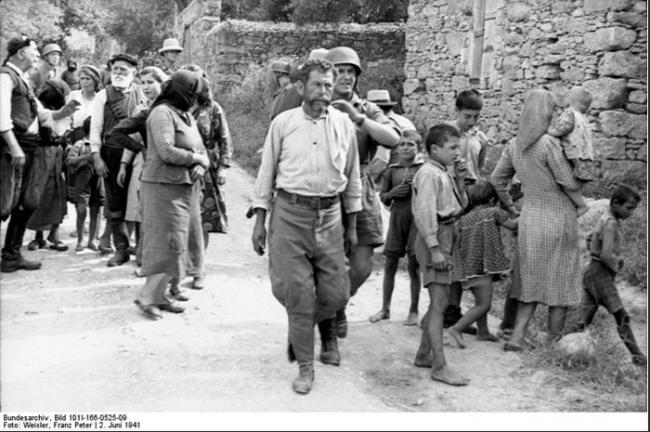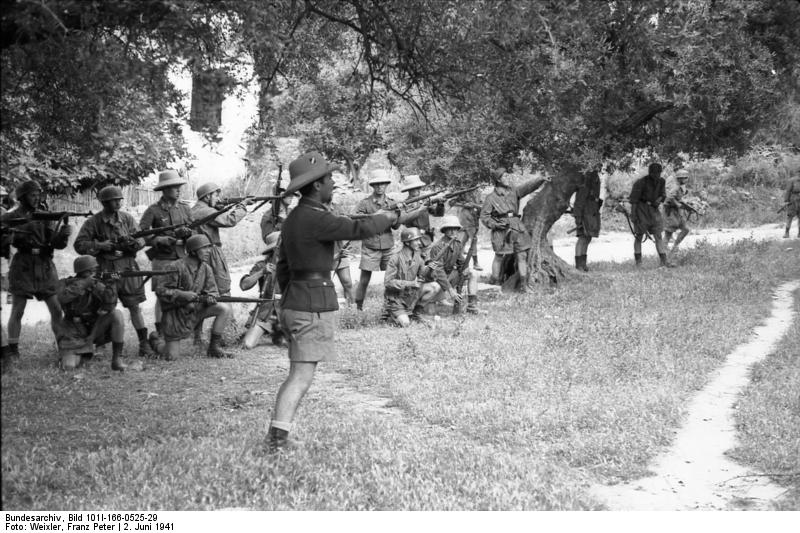Today I would like to welcome Mark Stephenson, who wrote a very interesting post for me some time ago, about books set in Greece (read it here). His own debut, a thriller set partly in Crete, has just been published. Having read an early draft, which I found a real page-turner, I’m eagerly anticipating discovering the final version. Meanwhile, Mark has described for us how he got his inspiration. In his own words:
I’ve always dreamed of being a writer and while working in investment banking in the City of London, I started to write a novel which was set in Greece. The half-written manuscript sat in my desk drawer for over twenty years. It told the story of a student called Andreas who was killed by the police in the famous Athens Polytechnic riots of November 17th 1973. It is a quest by his girlfriend, who was carrying Andreas’ child at the time of the killing, to find out the truth. It is also a fight between two brothers, one of whom was responsible for the murder and now deeply regrets what has happened. There were many plot holes in the manuscript and the pressures of my job did not allow me enough free time to finish. A novel involves a huge amount of work and I’ve got great admiration for those who do a day job and still manage to write in the evening. Christopher Hitchens once said: “Everybody does have a book in them, but in most cases, that’s where it should stay.” I was determined to let mine out into the world, but whether I have any talent for story-telling remains to be seen.
To find out, I retired from my job a few years early and decided to follow my dream. The first thing I did was to enrol in an MA in Crime and Thriller writing at City University in London. I was not trying to write literary fiction so this course seemed to be the right thing to do. A requirement of the MA was to complete a novel so it provided excellent motivation to get the novel finished. My hopes were set back when my tutor told me that the novel I’d started to write all those years ago was not topical enough for a mass market and suggested that I try something else. I took the advice, but could not throw away my desire to write a novel set in Greece. I’ve been going to Greece for over forty years and fell in love with the country and most of all the people. I’ve always been a big admirer of the novels of Nikos Kazantzakis and his wonderful Report to Greco which steered me towards setting my novel in Crete.
The novel has two interlocking time shifting narratives. The first tells the story of Callidora, a young Cretan shepherdess, during the German invasion of Crete in 1941. She discovers an ancient Christian scroll which has been revealed, buried under a church’s foundations, after it is destroyed during an air raid. Callidora meets Hans, a German paratrooper who helps her understand the significance of what she has found. Her friendship with Hans does not go down well with Callidora’s family and fellow villagers, who make accusations of collaboration with the enemy and disown her. Meanwhile, Hans’ commanding officer, Captain Wolfgang Kohlenz, will stop at nothing to force Callidora to reveal the scroll’s secret.

The plight of Callidora’s fictional village of Tirata reflects the truth that many Cretan villages were destroyed during the occupation by the Germans. One of the most famous is Kandanos in the White Mountains. I wanted to see for myself what the village was like and, although it has been rebuilt, at least I could see the location and visit the monument to those Cretans who were executed. My experience on that trip into the mountains typifies why I admire the Greek people so much. I am told that there is no word in Greek for stranger and I have certainly seen that over the many years I’ve been going to the country. I think the way they have helped the refugees in islands like Lesbos illustrates that point better than my story but I’ll tell it anyway.
On the road to Kandanos with my wife, I made the wrong turning and ended up on a stone track. Foolishly, I kept going and as we began to climb I decided to turn back. I needed to reverse a little but got stuck in a ditch and couldn’t move the car. Thanking God for good mobile reception in the mountains, I telephoned the car hire company who were not best pleased. When I said that the car was not damaged and just needed some help, the car hire lady said that she thought she knew somebody who might help and would phone me back. A few minutes later she came back to tell me that a friend from the fire service was coming and that we should start walking back to the main road. In less than twenty minutes, a large fire truck appeared manned by two handsome young firemen, much to my wife’s evident pleasure after being fed up with her husband for getting stuck. The men towed us out of the ditch. They refused my offer of recompense for their help and went on their way.
We drove on and found Kandanos, visiting the monument which was moving in its simplicity. There was a strange feeling about the village which, although rebuilt, seemed still in mourning for what had been lost. I came away feeling inspired to complete my novel. Many tourists never get much past the Cretan coast line but in the mountains, you see the true resilience and spirit of Zorba.

The fierce resistance by ordinary Cretans took the Germans by surprise. The Parachute regiment known as the Fallschirmjager were expecting an easy victory but were horrified by the way that the resistance started within the first hour of the invasion. Every member of the parachute regiment received a copy of its own ten commandments. The ninth commandment said: “Against a regular enemy fight with chivalry, but give no quarter to guerrillas.”

These so-called guerrillas included boys, old men, women and even priests and monks fighting with any weapon they could get their hands on including antiquated rifles used to shoot ducks, pick axes, scythes and spades. On the first day, the Germans lost over 2000 paratroopers, many who were killed by the irregular army of Cretans. The pictures and the video below illustrate the massacre at Kontomari where a similar war crime was committed and where the paratroopers had their revenge.
Apart from Callidora’s story, the other narrative tells the story from the perspective of Richard, a British MI6 intelligence analyst caught up in the London bombings of 2005. The two stories are linked by Richard’s search for the truth about his father, who is presumed dead and yet being hunted by both the CIA and Al Qaeda. He discovers a family secret which draws him into a conspiracy of global significance. The conspiracy relates to words of the Cretan scroll discovered by Callidora in 1941. Terrorists want its secret revealed but the CIA, Mossad and MI6 want it destroyed.
My novel is called The Last Messenger and is intended to be the first book in a trilogy. I received quite a few positive comments from agents about the strength of my writing but all said that there was no demand for conspiracy thrillers. Therefore, it is with a streak of bloody-minded and perhaps misguided optimism that I decided to publish the book myself. I certainly don’t expect to make any money from publication, but I’ll be thrilled if someone I don’t know tells me that they enjoyed reading it.
The attached link will lead you to a free sample of the novel and has links to purchase either the paperback version or the Kindle version.
I do hope you will consider adding it to your reading list. If you do read it then please let me know what you think on my website.
https://jonathanmarkwriter.com/
There is much more on the background themes of the novel on the website.
The modern narrative set in 2005 would suit readers who enjoyed I am Pilgrim whereas the World War Two story explores themes similar to Captain Corelli’s Mandolin.
Thank you, Marina, for giving me the opportunity to guest on your blog and to relate some of the inspirations behind setting my first novel in Greece. Readers of Letters from Athens will be pleased to see scenes from the novel set in that wonderful city, in the district of Exarchia.


This looks like an interesting read, and I wish him success with the new book.
Best wishes, Pete.
LikeLiked by 1 person
I have put this on my list. It sounds excellent.
LikeLiked by 1 person
Thank you for the recommendation !
LikeLike
Good luck to Mark with his book. I will visit his website.
LikeLiked by 1 person
Thank you Robyn. I’ve just followed your blog. Looks interesting. I have also moved into a new house and started planting a new garden so your experiences will be helpful.
LikeLiked by 1 person
Thank you Mark. My humble musings on life through the lens of my garden. Good luck with your new garden.
LikeLike
I really enjoy reading author’s background histories to the stories they write. This story of Greece attacked by the Nazi’s is one I didn’t know. I was mesmerized by the movie The Guns of Navarone when I was a kid. Such bravery. If only all those awful events were the last of their kind. I wish all the best to Mark Stephenson with his books. No demand for conspiracy thrillers? I doubt that.
LikeLiked by 1 person
Thank you Sharon. Just seen your comment. I appreciate your good wishes. I hope you are right.
LikeLiked by 1 person